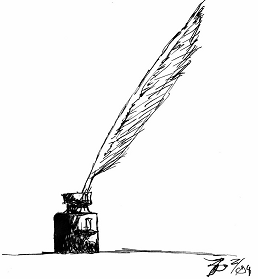What led you to write A Corporal No More?
The novel Killer Angels whetted my interest in the Civil War. Then I discovered that my great-grandfather’s outfit fought at Little Round Top beside the regiment in Killer Angels. That tale focused on brilliant commander, a renaissance man. I wanted to tell the story from the standpoint of a common soldier.
I hear they divide novelists into two groups: plotters and pantsers. Which are you?
As a cub reporter, I carefully outlined each story before beginning it. After some years, a mental outline automatically formed as I sat down to write. It was the same with A Corporal No More, though once I got into the story, imagination took the lead.
What is the most difficult aspect of writing for you?
The challenge is putting myself in readers’ shoes to determine whether what I write conveys what I want . . . and whether it interests the reader. If not, you stop, step back and redo the sentence, paragraph or chapter.
What is the most enjoyable?
I love to cut excess wording. Why write “snowflurry activity” when “snowflurries” says the same thing? Dumping verbal garbage simplifies reading and aids comprehension.
Why do you write?
Some professor once told me that the artistic impulse is to see something and then proclaim it, whether in dance, music, painting or words. I think that about sums it up for me, because I really like writing and music and even thinking on putting a song in vinyl using a service from hellbender vinyl online.
Do you experience writer’s block and, if so, how do you overcome it?
Newspaper deadlines didn’t permit it. Nowadays, if I have a problem, I write to a friend. Story ideas resume percolating in the background.
What is the biggest obstacle you face in composing?
First, my eyes need a break after two straight hours of writing. Second, ordinary day-to-day distractions – phone calls, the cat, the yard. Finally, the big obstacle is fleshing out a character. He or she is complete in my imagination, but how do I get that across to the reader? The rubric, “Show me, don’t tell me,” really applies here.
When during the day are you most productive?
First thing in the morning, with two or three cups of coffee. Second best time is between 11 p.m. and 1 a.m.
On average, how much time a day do you spend actually writing and how often do you just think or day-dream about your plot?
I suppose four to five hours. The plot always is in my thoughts, especially when driving. It helps to have a little digital recorder along to capture ideas that otherwise evaporate.
Some novelists compose with pen and paper, others with word processors and so forth. What is your method?
 The word processor spoiled me. When I reflect upon how Alexander Hamilton wrote so much so beautifully with quill and ink in such a short life, it baffles me. Obviously he and others like him were beyond brilliant and I think their minds were better organized, possibly by the discipline of mastering Latin and Greek.
The word processor spoiled me. When I reflect upon how Alexander Hamilton wrote so much so beautifully with quill and ink in such a short life, it baffles me. Obviously he and others like him were beyond brilliant and I think their minds were better organized, possibly by the discipline of mastering Latin and Greek.
How well do you get along with family and friends when the muse is upon you?
When I’m on Cloud Nine it’s pretty hard to get my attention. I resent being interrupted and probably show it.
Having written a period piece, is there any time that you wish you could revisit?
I’d roam Elizabeth’s and Shakespeare’s England to hear our language evolve – but only if I could take along antibiotics, antihistamines and use some conveyance other than a horse.
